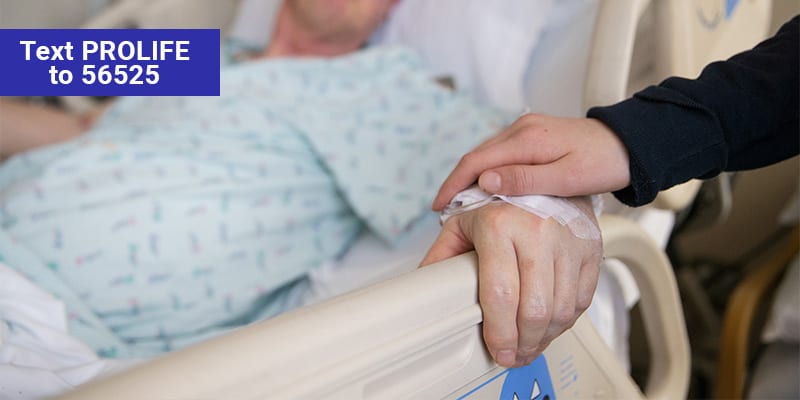A Polish citizen entrusted to the care of a British hospital was denied nutrition and hydration, ending his life. The Pole, a middle-aged man identified by the media only as “R.S.” suffered a heart attack in November of last year and sustained serious brain injury. According to reports, the man was breathing on his own and may have demonstrated minimal brain activity, but his wife agreed with the hospital’s assessment that his life was not worth living and that he should be denied basic life-sustaining care.
News of his death broke on January 26, almost two weeks after he was removed from nutrition and hydration. Since his hospitalization, R.S.’s mother, two sisters, and niece, fought for his right to continued care. His birth family argued that his strong Catholic faith would make him opposed to the barbaric death he endured and argued that he deserved the Right to Life and continued care.
R.S.’s mother said the British government was seeking to “dehydrate my son to death” calling the decision “euthanasia by the back door” and saying: “Depriving him of nutrition and hydration is functionally the same as giving him an injection to end his life, except that the entire process is longer, degrading and inhumane treatment.”
Polish diplomats intervened and advocated for R.S.’s life. A Polish medical facility offered to accept R.S. as a patient if the British hospital would agree to release him. A neurosurgeon at the Polish facility, Wojciech Maksymowicz said, “It does not matter whether he is in a vegetative state or minimal consciousness. In such a situation, you have to hold out your hand to the patient and try.” The clinic, known as the “Budzik” (or “Alarm Clock”) has successfully treated other brain-injured patients and even had patients awaken from comas.
As Texas Right to Life has previously reported, brain death is not well understood, and patients receiving specialized care sometimes unexpectedly improve and even make a full recovery. Regardless of whether the patient ever regains brain function or remains impaired by the brain injury, dehydrating and starving the person to death is an unjust and inhumane death sentence. Because the nutrition and hydration was administered through artificial means, anti-Life hospitals present removing this basic human need as “pulling the plug” when in reality this is denying the universal need for food and water.
The Catholic Bishops’ Conference of England and Wales, which tirelessly petitioned on R.S.’s behalf released a statement that read in part, “We pray that what happened here will not be repeated in the future, and hope that all those requiring Clinically Assisted Nutrition and Hydration (CANH) will be treated with proper human dignity.” The bishops’ conference further clarified, “Providing food and water to very sick patients, even by assisted means, is a basic level of care. This care must be given whenever possible unless it is medically indicated as being overly burdensome or failing to attain its purpose.”
One of the points made by his biological family fighting for his life was that R.S. had expressed disapproval of other cases in which a patient was dehydrated and starved to death. For example, R.S. opposed the imposed death of the toddler Alfie Evans. As in R.S.’s case, Alfie was denied basic life-sustaining care and died despite offers from other hospitals to accept him as a patient.
After R.S.’s death, the official cause of death was reported to be the heart attack he suffered more than two months ago. No mention of the removal of food and water that led to his painful and unjust death was made in the documents obtained by R.S.’s sister. His family continues to seek answers and requested further investigation.
People in Poland were moved by R.S.’s story and protested on his behalf. The strongly Pro-Life country saw this case as a struggle between two world views. A Deputy Minister of Poland’s Ministry of Justice said that he was sure the “Civilization of Life” would win out over the “Civilization of Death.” Unfortunately, in this case life did not prevail. R.S.’s untimely death should be a reminder of the battle before us all to protect vulnerable patients and ensure that people understand what is at stake.


